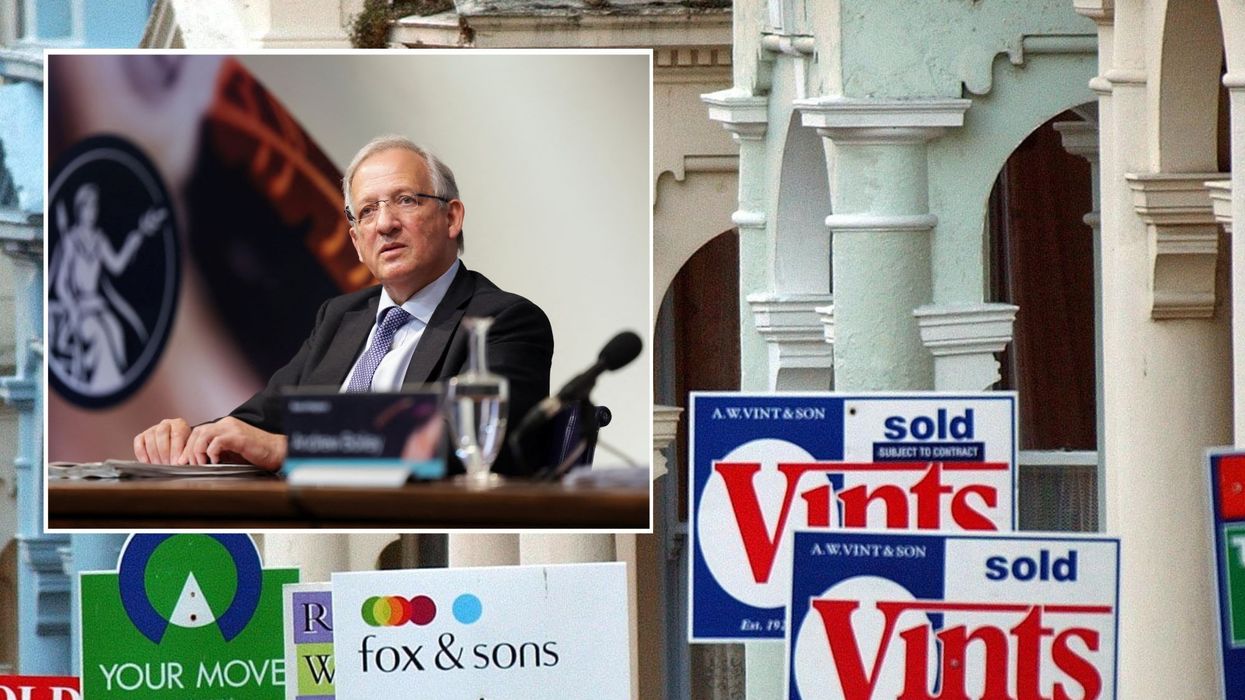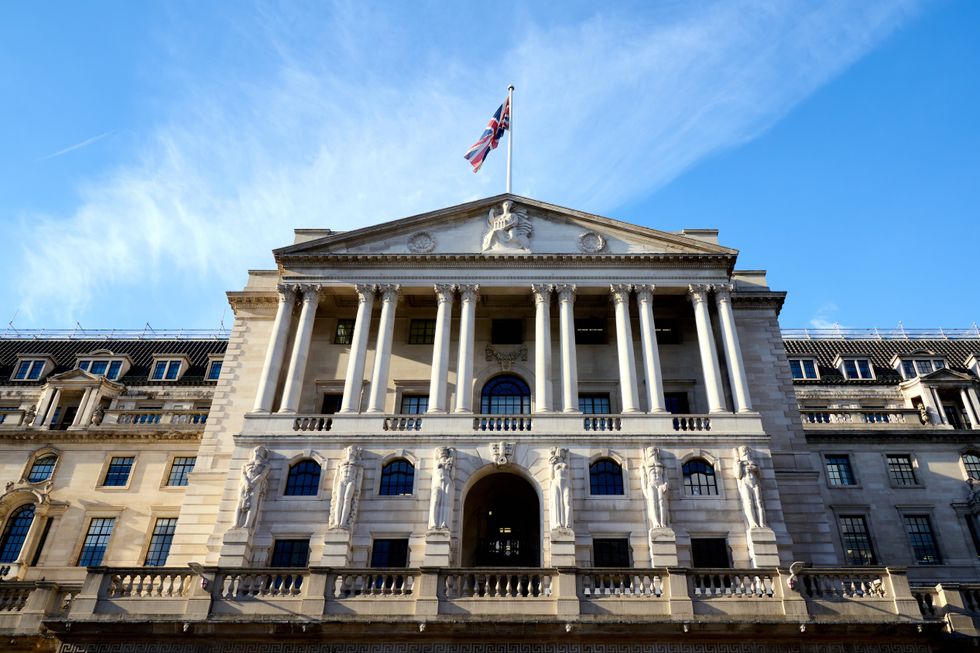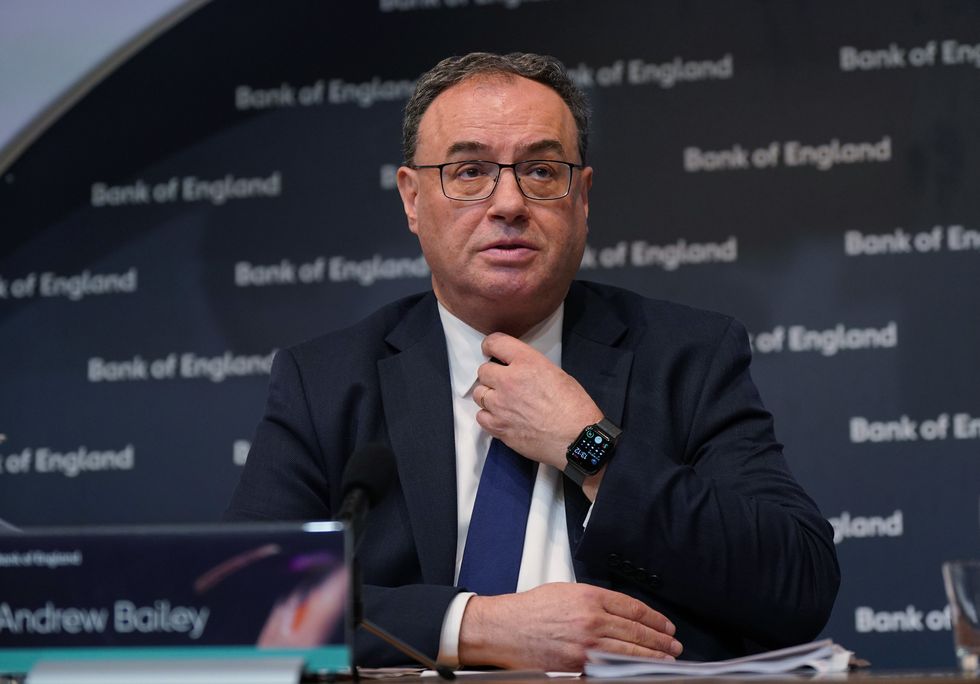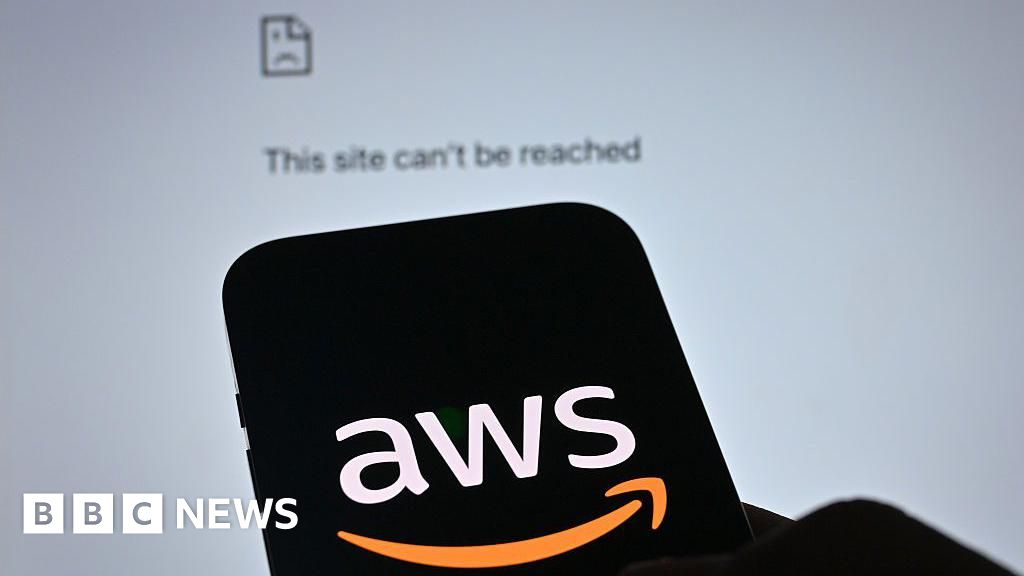Mortgage rates warning: Bank of England chief tells homeowners high interest rates are here to stay
Interest rates will remain high for the "foreseeable future" following "mixed signals about the economy", a Bank of England boss claims.Deputy Governor of the Bank of England for financial stability, Sir Jon Cunliffe says all the central banks around the world whose responsibility is to tackle inflation need to “work to deliver their credibility”.The economy grew marginally by 0.2 per cent in August following a sharp fall in July.Analysts suggested the figures were "lacklustre" and said higher borrowing costs and the higher cost of living was weighing on consumers and businesses.“Central banks should expect to be under huge scrutiny."History in the end will judge us not on whether we bring inflation back to target, because the Bank will do that, but on how we’ve done it and how the economy has fared," Cunliffe told the Sunday Times.Rates were held at 5.25 per cent in September, ending a run of 14 consecutive rises after inflation started to slow.Discussing the rates, Cunliffe said he believes they will stay at their higher levels, “the way things look at the moment”, “into the foreseeable future”.LATEST DEVELOPMENTS:Thousands of warm banks opening again this winter as Brits struggle to heat their homesCoventry Building Society increases interest rate on cash ISA to give savers ‘market-leading’ rate‘Good for mortgage holders’ - Liam Halligan outlines Bank of England Nine’s ‘unusual’ rates hintHe added: “We’re getting mixed signals about the economy. "There is some indication activity is starting to slow and there’s some indication that the labour market is starting to cool, but it’s happened quite slowly.“What we’ve learnt — as a central banker, you do have to learn — is that the economy was much more resilient through 2022 than we thought.”As inflationary pressures such as higher energy prices and supply-chain disruption are subsiding, other factors, such as higher pay deals, will “persist”, according to Cunliffe.“What one’s trying to do is peer into the future and say, ‘In 6 to 12 to 18 months, how strong are those inflationary pressures going to be?’ I can see the economy starting to cool but I can still see the pressures are strong.”Despite the UK not being in recession, there have been concerns over weak growth.In September, Bank of England governor Andrew Bailey said there were "increasing signs" that higher rates were starting to hurt the economy.


Interest rates will remain high for the "foreseeable future" following "mixed signals about the economy", a Bank of England boss claims.
Deputy Governor of the Bank of England for financial stability, Sir Jon Cunliffe says all the central banks around the world whose responsibility is to tackle inflation need to “work to deliver their credibility”.
The economy grew marginally by 0.2 per cent in August following a sharp fall in July.
Analysts suggested the figures were "lacklustre" and said higher borrowing costs and the higher cost of living was weighing on consumers and businesses.

“Central banks should expect to be under huge scrutiny.
"History in the end will judge us not on whether we bring inflation back to target, because the Bank will do that, but on how we’ve done it and how the economy has fared," Cunliffe told the Sunday Times.
Rates were held at 5.25 per cent in September, ending a run of 14 consecutive rises after inflation started to slow.
Discussing the rates, Cunliffe said he believes they will stay at their higher levels, “the way things look at the moment”, “into the foreseeable future”.
LATEST DEVELOPMENTS:
- Thousands of warm banks opening again this winter as Brits struggle to heat their homes
- Coventry Building Society increases interest rate on cash ISA to give savers ‘market-leading’ rate
- ‘Good for mortgage holders’ - Liam Halligan outlines Bank of England Nine’s ‘unusual’ rates hint
He added: “We’re getting mixed signals about the economy.
"There is some indication activity is starting to slow and there’s some indication that the labour market is starting to cool, but it’s happened quite slowly.
“What we’ve learnt — as a central banker, you do have to learn — is that the economy was much more resilient through 2022 than we thought.”
As inflationary pressures such as higher energy prices and supply-chain disruption are subsiding, other factors, such as higher pay deals, will “persist”, according to Cunliffe.

“What one’s trying to do is peer into the future and say, ‘In 6 to 12 to 18 months, how strong are those inflationary pressures going to be?’ I can see the economy starting to cool but I can still see the pressures are strong.”
Despite the UK not being in recession, there have been concerns over weak growth.
In September, Bank of England governor Andrew Bailey said there were "increasing signs" that higher rates were starting to hurt the economy.







































